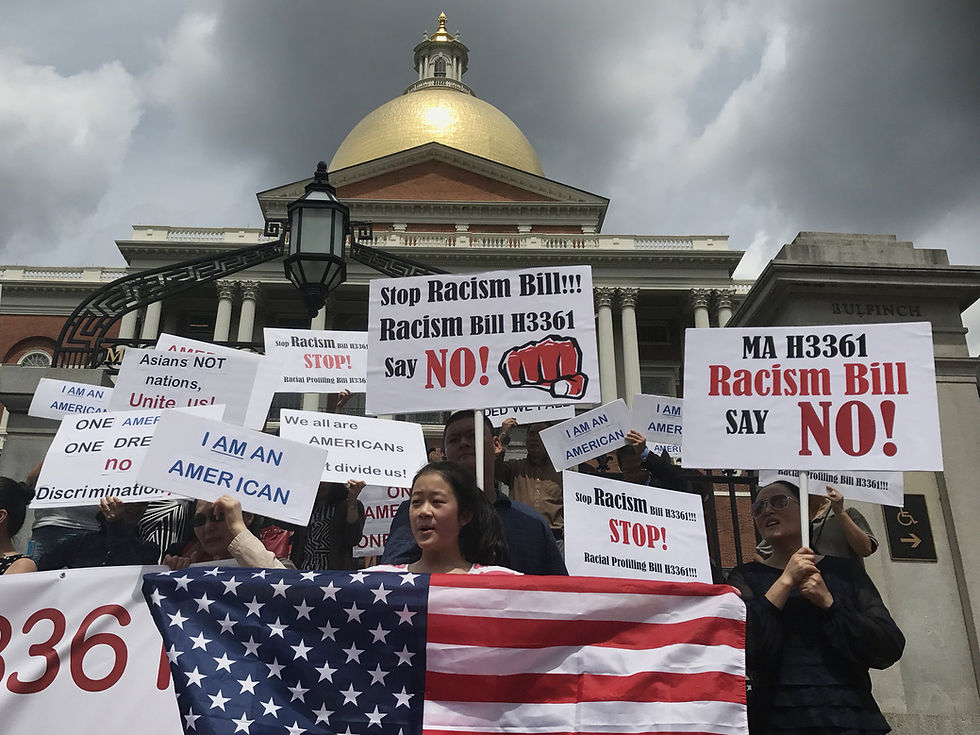Is Data Collection on Asian Americans Racist?
- ml-saaf
- Sep 11, 2017
- 3 min read

The term "Asian American" is an extremely wide umbrella, and often paints more than 20 subgroups, ranging from Chinese, Filipino, and Korean to Laotian, Bhutanese, and Mongolian, with a broad brush. To begin to gain more knowledge about this diversity, some states like Massachusetts, along with California, Rhode Island, and Minnesota, are beginning to pass bills that require state agencies to collect more demographic data about Asian Americans.
However, when Massachusetts state representative Tackey Chan introduced such a bill, the move was met with harsh backlash, especially from the state's Chinese American community. In addition to calling and emailing his office, they protested on the steps of the Massachusetts State House in Boston, referring to the bill as "the racist bill." Many of them were worried that the data would be abused, one protestor stating, "This is obviously discrimination against Asian-Americans." Chan's reasoning behind the bill seems innocent -- there simply isn't enough data about Asian Americans at the state or local level, and Chan wanted to change that. "We are a data-driven society," he explains. "It's hard to make public policy without data. And if you don't have data, you can't advocate." Lawmakers support this belief; without data, it becomes challenging to meet specific needs.
So how exactly could such data be abused?
One main concern links back to a common concern: affirmative action. Many immigrants from Mainland China are worried about their children's schooling, wondering if such detailed data collection on them as a single subgroup might further lower chances of acceptance to top institutions around the country. Wen Zhao, who brought her seven-year-old son with her from Westford, MA, to the protest, voices this concern. "They use those data in education, in college admissions and even in [the] workforce. That's not fair," Zhao said. She further explained her fear of how separating Asian-Americans by ethnic groups might further divide Asian Americans amongst themselves.
In response to such backlash across several states, over 20 member organizations and supporters of the Asian Pacific Islanders Civic Action Network released a statement supporting the Massachusetts bill. "Disaggregation is not segregation," they stated. "In fact, we should be united in uplifting our community members who have been continuously calling for data disaggregation so they will not be left invisible." More detailed data collection about these "invisible" subgroups of Asian Americans could bring in more funding and services from grants. Anh Vu Sawyer, executive director of the Southeast Asian Coalition, confirms that there needs to be data to support claims for certain needs. "I cannot just say I observe that I have people coming in with suicide tendency or I have people with a family of five and [who] have less than $15,000 a year," she explained.
Concerns may not be unfounded, especially considering our current political climate that is undeniably hostile towards immigrants. More comparisons of socioeconomic status between some of these Asian American subgroups may also become inevitable, which can lead to rocky relations within the community. However, Asian Americans, made up of an incredibly diverse range of cultures, beliefs, ethnicities, histories, and circumstances, are too often merged into one. And even when Asian Americans are not pitted against each other, they are often pitted against other minority groups.
As is commonly said, knowledge is power. As for what exactly that power will be used for yet remains unclear. But one thing is for sure: Asian Americans cannot, must not, turn against each other.
Source: http://www.npr.org/2017/08/05/541844705protests-against-the-push-to-disaggragate-asian-american-data





Comments